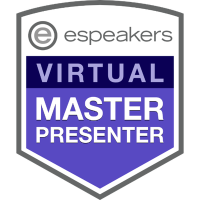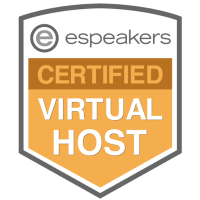|
|
Unconscious Bias Keynotes & Virtual Workshops
Dr. Holmes hosted a virtual, 60-minute webinar entitled “Tackling Unconscious Bias to Prevent Burnout and Improve Patient Care”. From the beginning, Dr. Holmes engaged the audience by asking thought provoking questions. His slides were impactful, which enhanced his presentation. He spoke purposefully and was respectful of the time allotted for the presentation. His interpersonal and communication skills are excellent. In addition, Dr. Holmes provided a handout for the participants to promote further learning and engagement. It was also a pleasure to work with him as he was professional and responsive. Iwona Misiuta, PhD, MHA - Clinical Content Manager at Med-IQ, Baltimore, MD |
Equity, Empathy and Your Role as An Ally
Organizational equity, which is the E in DEI, can be defined as creating environments that maximize the likelihood of success for a diverse array of individuals. It’s shaping the circumstances that consistently facilitate the success of people from different backgrounds, who may bring diverse skillsets and ways of thinking to the workplace. Unconscious bias can have a significant impact on the creation of such environments. The primary purpose of this session is to identify specific steps we can take to mitigate the negative impact of these biases and to serve as an ally to potentially disenfranchised individuals. Because of this session, you'll be able to:
Audience: Staff members, managers and senior leaders
Format: 60-75-minute interactive keynote presentation OR virtual workshop
Organizational equity, which is the E in DEI, can be defined as creating environments that maximize the likelihood of success for a diverse array of individuals. It’s shaping the circumstances that consistently facilitate the success of people from different backgrounds, who may bring diverse skillsets and ways of thinking to the workplace. Unconscious bias can have a significant impact on the creation of such environments. The primary purpose of this session is to identify specific steps we can take to mitigate the negative impact of these biases and to serve as an ally to potentially disenfranchised individuals. Because of this session, you'll be able to:
- Define equity and describe specific types of unconscious bias that can negatively impact organizational equity (e.g., proximity bias and beauty bias).
- Identify specific steps we can take to reduce the negative impact of unconscious bias on organizational equity.
- Define ally and identify specific steps you can take to advocate for and support underrepresented group members.
- Describe the impact of empathy in the creation of equitable environments where members are able to be their true, authentic selves.
Audience: Staff members, managers and senior leaders
Format: 60-75-minute interactive keynote presentation OR virtual workshop
Unconscious Bias: A Quiet Performance Killer
Noise is anything that interferes with the accurate transmission of a message between a sender and a receiver. It can be categorized as internal, external, emotional or cultural; however, unconscious bias is the loudest form of noise because it not only interferes with our ability to build powerful relationships across cultural differences, it leads to bad decisions that impair individual and organizational performance. This session will describe unconscious bias and identify the specific ways it can diminish your effectiveness. Specifically, as a result of this presentation, you will be able to:
Audience: Staff members, managers and senior leaders
Format: 60-75-minute interactive keynote presentation OR virtual workshop
Noise is anything that interferes with the accurate transmission of a message between a sender and a receiver. It can be categorized as internal, external, emotional or cultural; however, unconscious bias is the loudest form of noise because it not only interferes with our ability to build powerful relationships across cultural differences, it leads to bad decisions that impair individual and organizational performance. This session will describe unconscious bias and identify the specific ways it can diminish your effectiveness. Specifically, as a result of this presentation, you will be able to:
- Define unconscious bias and describe the different types of bias that can impact your interactions with others.
- Identify the specific ways unconscious bias can affect your personal and professional relationships, as well as your work performance.
- Identify specific steps you can take to reduce your unconscious bias and diminish the negative impact it has on your life and performance.
Audience: Staff members, managers and senior leaders
Format: 60-75-minute interactive keynote presentation OR virtual workshop
Unconscious Bias and Uncomfortable Conversations
Unconscious bias is a quiet, yet powerful performance killer because it interferes with our ability to build relationships across differences and leads to bad decisions that impair individual and organizational performance. One way it negatively affects performance is through the manifestation of microaggressions. These commonplace statements send derogatory messages to certain individuals, often unintentionally, that can damage relationships and impair performance. This session defines unconscious bias, describes the negative impact of microaggressions and proffers steps we can take to reduce this negative impact by engaging in, what are often, ‘uncomfortable conversations.’ Specifically, as a result of this session, you will be able to do the following:
Audience: Staff members, managers and senior leaders
Format: 60-75-minute interactive keynote presentation OR virtual workshop
Unconscious bias is a quiet, yet powerful performance killer because it interferes with our ability to build relationships across differences and leads to bad decisions that impair individual and organizational performance. One way it negatively affects performance is through the manifestation of microaggressions. These commonplace statements send derogatory messages to certain individuals, often unintentionally, that can damage relationships and impair performance. This session defines unconscious bias, describes the negative impact of microaggressions and proffers steps we can take to reduce this negative impact by engaging in, what are often, ‘uncomfortable conversations.’ Specifically, as a result of this session, you will be able to do the following:
- Define unconscious bias and describe the different types of bias that can impact your interactions with others.
- Describe microaggressions and the ways they can negatively impact communication, work relationships and work performance.
- Define uncomfortable conversations and the steps we can take to manage these conversations more effectively. This will include discussion on giving and receiving constructive feedback and the impact of emotional noise on the communication process.
Audience: Staff members, managers and senior leaders
Format: 60-75-minute interactive keynote presentation OR virtual workshop
Reducing Unconscious Bias in Customer Service
A study titled, Beyond Starbucks: How Racism Shapes Customer Service, emailed 6,000 hotels across the U.S. using 12 fictitious email accounts. They varied the names of the senders to signal different attributes, such as race and gender, to the recipients at the hotels. They were brief emails that simply asked for local restaurant recommendations. The researchers tracked whether hotel employees responded and if so, analyzed the content from those emails. They found two significant outcomes. First, hotel employees were far more likely to respond to inquiries from people with typically White names than to people with Black or Asian names. Second, hotel employees gave higher quality responses to people with White names than those with Black or Asian names. This is a prime example of how unconscious bias can negatively impact the quality of customer service. This session describes 3 customer engagement modes that are prone to bias and offers specific steps we can take to mitigate this bias. As a result of this presentation, you will be able to:
Audience: Staff members, customer contact people, customer service managers and senior leaders
Format: 60-75-minute interactive keynote presentation OR virtual workshop
A study titled, Beyond Starbucks: How Racism Shapes Customer Service, emailed 6,000 hotels across the U.S. using 12 fictitious email accounts. They varied the names of the senders to signal different attributes, such as race and gender, to the recipients at the hotels. They were brief emails that simply asked for local restaurant recommendations. The researchers tracked whether hotel employees responded and if so, analyzed the content from those emails. They found two significant outcomes. First, hotel employees were far more likely to respond to inquiries from people with typically White names than to people with Black or Asian names. Second, hotel employees gave higher quality responses to people with White names than those with Black or Asian names. This is a prime example of how unconscious bias can negatively impact the quality of customer service. This session describes 3 customer engagement modes that are prone to bias and offers specific steps we can take to mitigate this bias. As a result of this presentation, you will be able to:
- Describe 3 types of bias that can negatively impact customer service: affinity bias, confirmation bias and halo/horns effect bias.
- Describe 3 common customer engagement dimensions that are susceptible to bias.
- Identify and implement specific steps we can take to reduce the negative impact of unconscious bias on customer service.
Audience: Staff members, customer contact people, customer service managers and senior leaders
Format: 60-75-minute interactive keynote presentation OR virtual workshop
Reducing Unconscious Bias in the Hiring Process
Unconscious bias can have a negative impact on many organizational processes such as onboarding, employee evaluation, customer service, sales, career development and compensation. The hiring process is no exception. Left unchecked, unconscious bias can negatively impact your recruitment, interviewing and selection activities. This highly interactive workshop will describe 3 types of unconscious bias that can impact the hiring process and identify specific steps we can take to reduce the negative impact of these biases. Because of this presentation, you will be able to:
Audience: Staff members, recruiters, hiring managers and senior leaders
Format: 60-75-minute interactive keynote presentation OR virtual workshop
Unconscious bias can have a negative impact on many organizational processes such as onboarding, employee evaluation, customer service, sales, career development and compensation. The hiring process is no exception. Left unchecked, unconscious bias can negatively impact your recruitment, interviewing and selection activities. This highly interactive workshop will describe 3 types of unconscious bias that can impact the hiring process and identify specific steps we can take to reduce the negative impact of these biases. Because of this presentation, you will be able to:
- Define unconscious bias and identify the specific ways it can harm your recruitment and selection process.
- Describe 3 types of unconscious bias that can negatively affect the hiring process: affinity bias, beauty bias and confirmation bias.
- Describe specific steps we can take to reduce the negative impact of unconscious bias on the hiring process.
Audience: Staff members, recruiters, hiring managers and senior leaders
Format: 60-75-minute interactive keynote presentation OR virtual workshop
Unbiasing Your Organization
This session serves as a follow-up to Unconscious Bias: A Quiet Performance Killer. It introduces a 4-step unbiasing process that will help participants reduce the negative impact of unconscious bias on work relationships and performance. Specifically, the facilitator will provide a detailed demonstration of the unbiasing process by examining its application with two specific organizational processes such as an employee referral process, onboarding process, team problem-solving process or customer service process. Because of this presentation, you will be able to:
Audience: Staff members, managers and senior leaders
Format: 60-75-minute interactive keynote presentation OR virtual workshop
This session serves as a follow-up to Unconscious Bias: A Quiet Performance Killer. It introduces a 4-step unbiasing process that will help participants reduce the negative impact of unconscious bias on work relationships and performance. Specifically, the facilitator will provide a detailed demonstration of the unbiasing process by examining its application with two specific organizational processes such as an employee referral process, onboarding process, team problem-solving process or customer service process. Because of this presentation, you will be able to:
- Define unconscious bias and identify the specific ways it can damage your organization.
- Describe a 4-step process that can be used to reduce bias in a work team, business unit and/or work process.
- Observe the application of this 4-step model with specific organizational processes in areas such as recruitment, selection, onboarding, problem-solving and decision-making, or customer service.
Audience: Staff members, managers and senior leaders
Format: 60-75-minute interactive keynote presentation OR virtual workshop

